32+ Sample Termination of Contract Templates
-
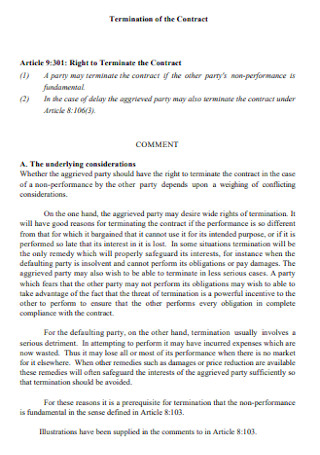
Termination of Contract T
download now -
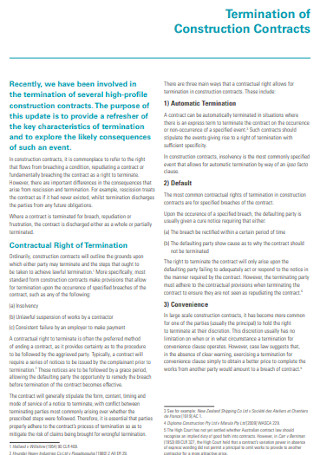
Termination of Construction Contracts Template
download now -
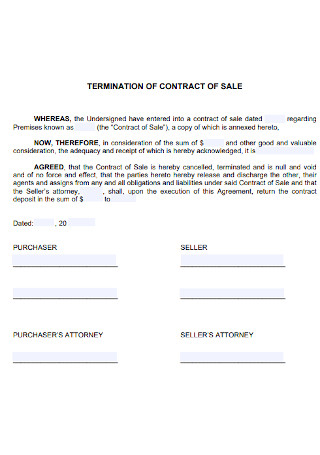
Termination of Contract for Sale
download now -
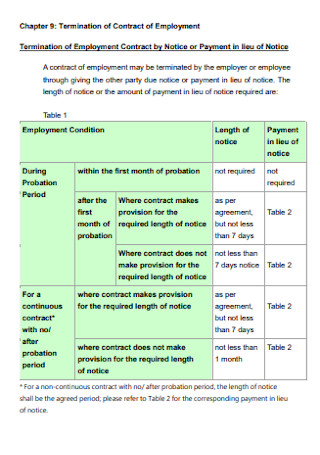
Termination of Contract of Employment
download now -
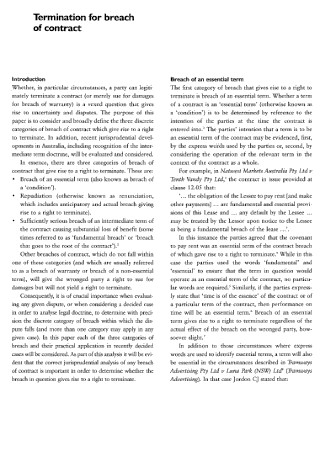
Termination for Breach of Contract
download now -
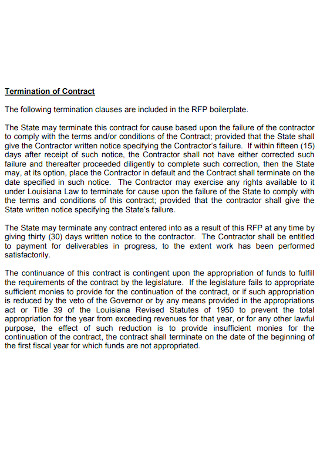
Sample Termination of Contract Template
download now -
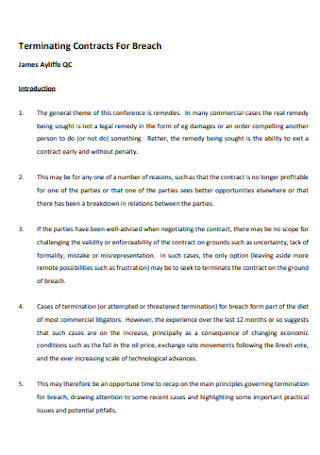
Terminating Contracts For Breach Template
download now -
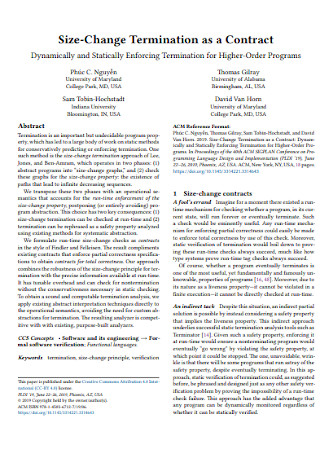
Size-Change Termination as a Contract
download now -
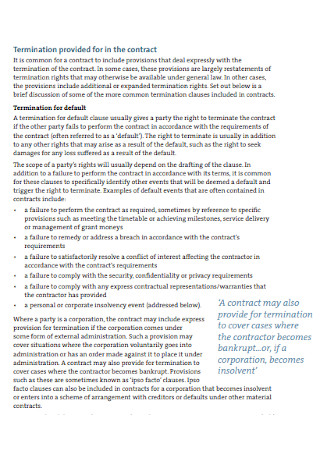
Termination of Commonwealth Contracts
download now -
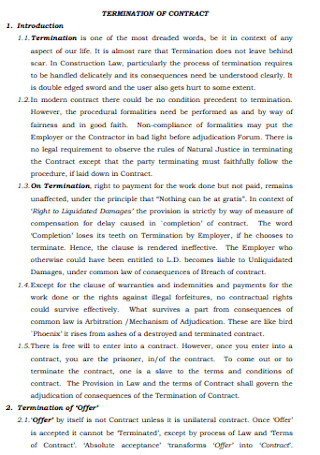
Basic Termination of Contract Template
download now -
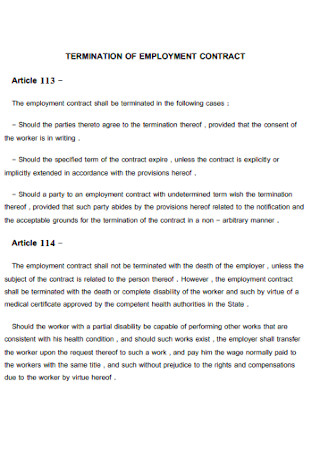
Termination of Employment Contract
download now -
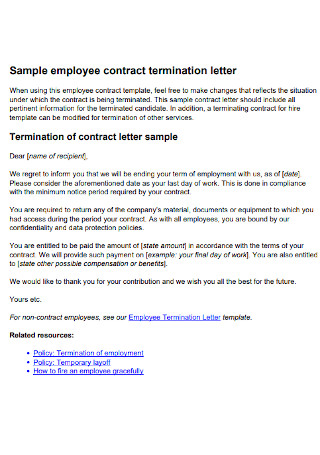
Sample Employee Termination Contract Letter
download now -
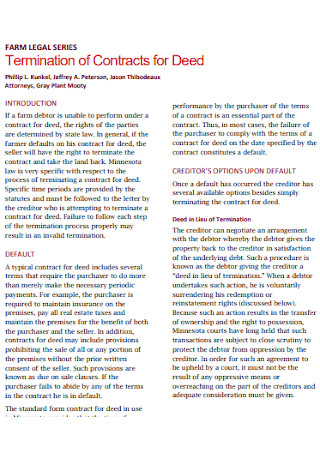
Termination of Contracts for Deed
download now -
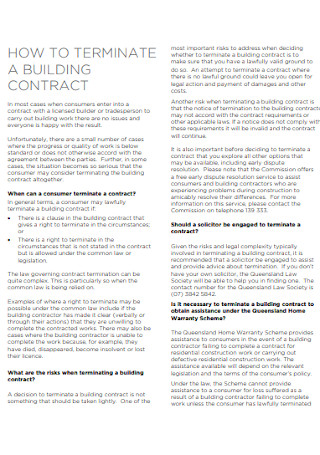
Termination Building Contract
download now -
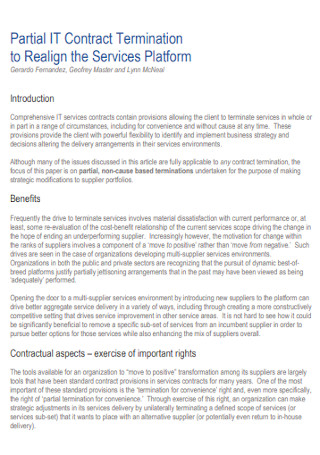
IT Contract Termination Template
download now -
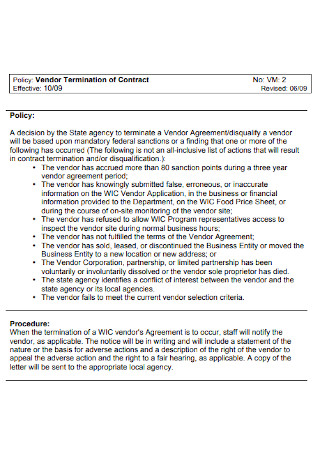
Vendor Termination of Contract
download now -
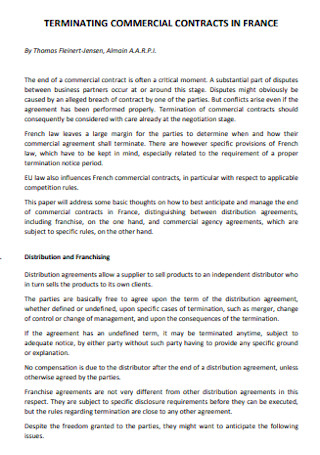
Terminating Commercial Contract
download now -
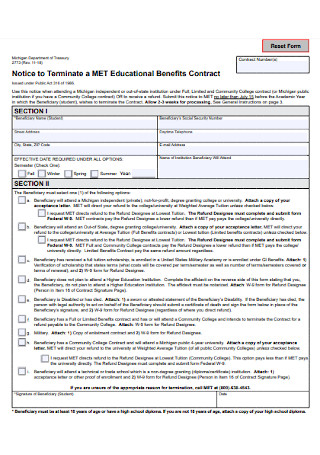
Termination Educational Befits Contract
download now -
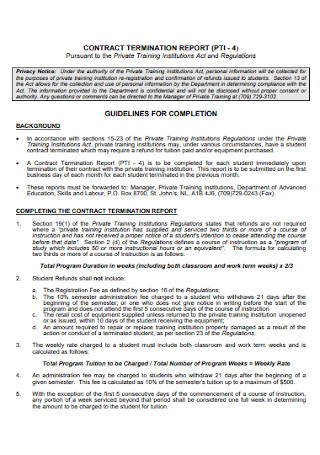
Contract Termination Report
download now -
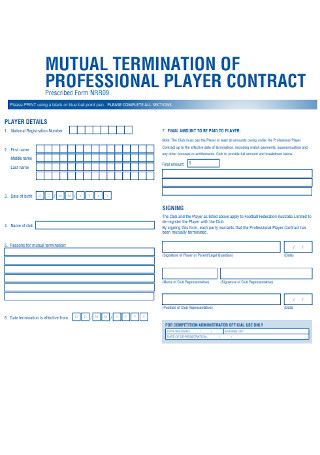
Mutual Termination of Player Contract
download now -
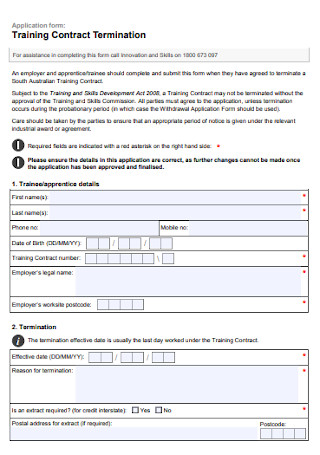
Training Contract Termination
download now -
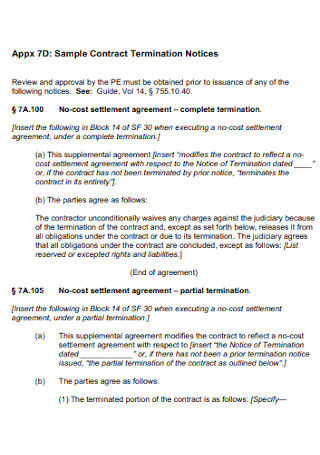
Sample Termination Notice Contract Template
download now -
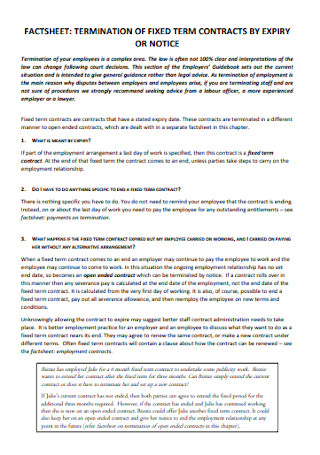
Termination Fixed Term Contract
download now -
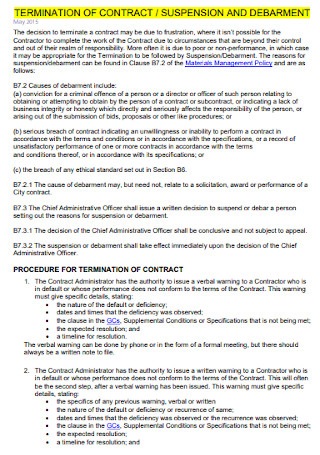
Suspension Termination of Contract
download now -
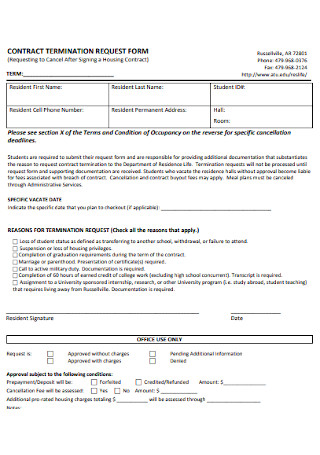
Contract Termination Request Form
download now -
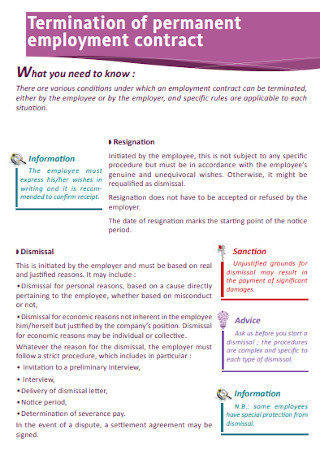
Termination of Permanent Employment Contract
download now -
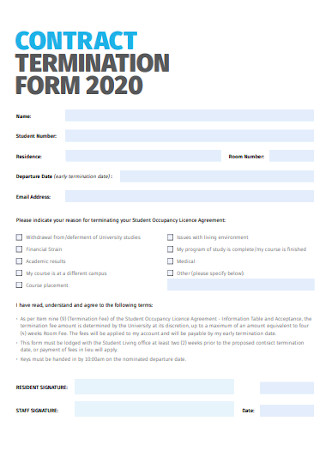
Contract Termination Form Template
download now -
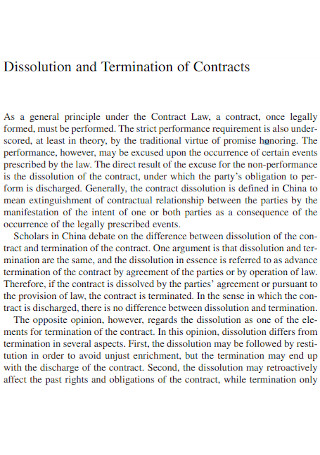
Dissolution and Termination of Contracts
download now -
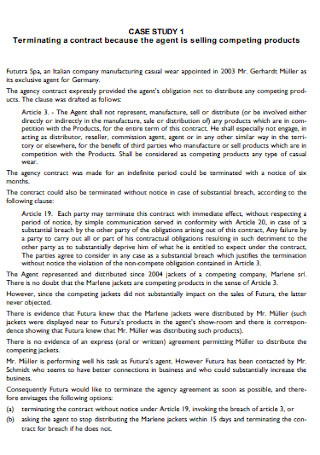
Agent Termination Contract Template
download now -
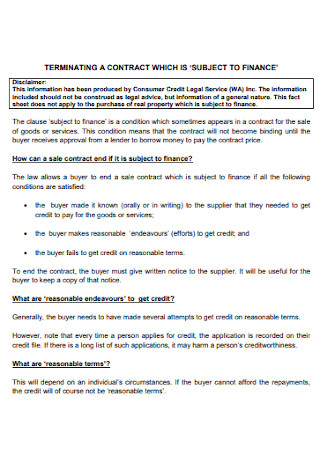
Termination Finance Contract Template
download now -
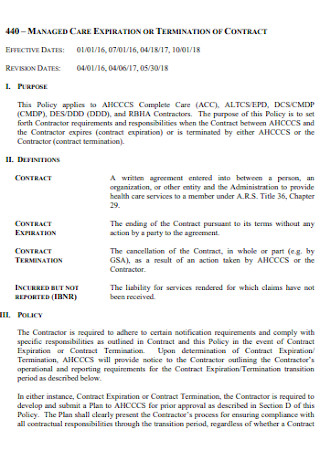
Care Expiration of Termination Contract
download now -
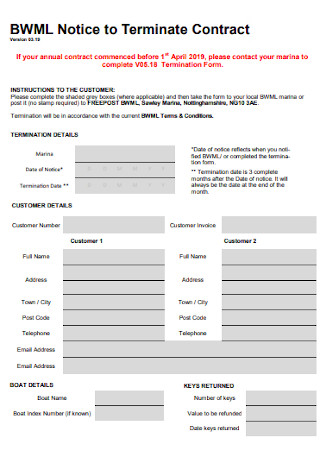
Notice to Termination Contract Template
download now -
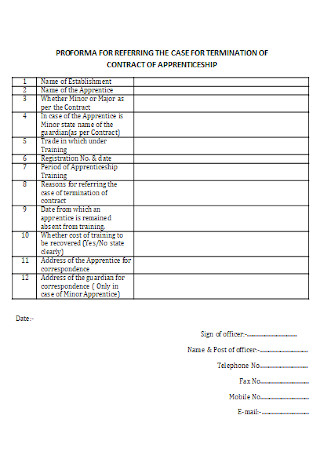
Termination of Contract Apprenticeship Template
download now
FREE Termination of Contract s to Download
32+ Sample Termination of Contract Templates
What Is a Termination of Contract?
What Causes a Termination of Contract?
What Happens in a Terminated Contract?
How To Terminate a Contract Properly
FAQs
What makes cancellation and termination of a contract different?
How do you terminate a contract in an email?
How do you respond to a contract termination?
What Is a Termination of Contract?
Before you plan on terminating any contract or agreement, it is essential to understand what that means first. With an agreement enforced by law forms a contract, whereas an action leading to an end comes termination. Combine both definitions, and you understand what a contract means, the official or legal agreement that must come to a close. Keep in mind that a lot of contracts exist, whether it is a verbal or written agreement. Construction, sales, real estate contract—you name it. When you decide to keep the contract void for various reasons, you can do so with contract termination. However, terminations do not automatically mean that liabilities are prevented, as it depends on the deal. Consequences come for some situations as there are laws stipulated among contracts. And, the governing law differs according to what is allowed or prohibited in your local state.
The Census Bureau found out that 7.7 million businesses or establishments, with at least one employee paid, existed in the U.S. in 2016.
This number significantly decreased as COVID-19 interrupted at least 30% of jobs and finances in America, which translates to about 30% of employment contracts being terminated.
More so, Statista surveyed on May 25, 2020, that the number of terminated employment contracts in Romania, due to the coronavirus pandemic, reached more than 410,000.
What Causes a Termination of Contract?
Do you remember when we mentioned that you could make a contract void involving a variety of reasons? Indeed, the available reason to terminate is not of one example only. Although the most common example of ending contracts is through a breach of contract, there are still more examples of what causes termination. What are these? The following reasons are acceptable in ending a contract:
What Happens in a Terminated Contract?
Gallup.com reports that the coronavirus disrupted approximately 30% of jobs and finances in the US. Meanwhile, around 410,000 employment contracts were terminated in Romania as of May 25, 2020. Besides America and Romania, there is no question that the pandemic is a global issue. Now, what happens to those contracts that got terminated? Keep in mind that ripping the document into a million pieces is not how it works. Without further ado, here are the significant examples of what occurs when a contract ends:
Monetary Damage
The party that committed a breach cannot easily get away in case there are repayments in the form of monetary damages to comply with first. Such a payment refers to the remedy given to the party that agreed with the stipulations. Compensatory and punitive damages are also included as monetary damages.
Rescission
Recall the common causes of contract termination. Does the error, fraud, or misinterpretation ring a bell? Indeed, and there is a remedy used by courts in ending the contract due to the said cause. This remedy is called rescission. The cancellation also occurs for other related examples like coercion and undue influence.
Restitution
Another remedy expected is restitution, and this refers to helping the injured or innocent party to be back in their advantageous position. Restitution is similar to monetary damages wherein compensation is given to the injured party. However, what makes restitution different is how the termination is not for compensating the affected party with earnings and profit losses.
Reformation
When the concern is to correct or restore the inequitable factors inside the document, then what happens is reformation. Courts depend on reformation for improving the content inside the contract until the errors get rewritten correctly. In this facet, there is no need to place the entire contract in the trash because there is a chance for making it right.
Special Tasks
Some orders involve specifications or special tasks to perform wherein a particular party should fulfill all obligations stated in the document. These extra tasks to manage become necessary whenever money damage is not enough for compensation. Others end up creating bigger damage, so the only choice is for that party to complete the stated task.
How To Terminate a Contract Properly
Back in 2016, the Census Bureau recorded approximately 7.7 million establishments or businesses having a paid employee. Imagine how many entities are out there nowadays since new establishments exist over the years. Whether the business involves sales, estate, or any other aspect, there may be a need to terminate a particular contract. And, you must do it right to avoid offending all parties and ensure that no law is broken. By doing so, you check out these steps on how to terminate a contract the proper way:
Step 1: Know the Reason/s Behind Terminating
Nobody wants to get sued for wrongful termination, so there must be a valid and appropriate reason behind the process. Thus, you start recognizing the main issue. You can even base from the acceptable reasons behind a termination contract, as stated above. Think carefully. Is there a sense of unfairness in a deal? Or perhaps, one employee in a business refused to stick with the discussed terms? Whatever it is, you have to jot it down since that reason should be mentioned in the termination of contract for them.
Step 2: Review the Original Contract
If you have already identified the reason to end a contracts, you must still check the termination clause from the old contract. How to handle termination should be clearly stated in this section of the document. Legally binding agreements even prepare the regulations of what happens when things have to stop. If there were no clear terms regarding that matter, then you should provide a better agreement, and negotiate that with the other party.
Step 3: Do Not Forget the Elements of a Contract
After the review, you are now ready to download from our termination of contract templates. Be sure to tweak its features and input the essential contract elements. What are these? The party information, provisions, clauses, and the like. The point is these elements make your contract complete. For example, you can identify every party according to their name, contact info, address, and more. Are you afraid that you might miss anything? Never fret since our templates give you the guidelines of what to provide. You only fill in the blanks and edit its content.
Step 4: Be Straightforward with the Details
You expect a lot to tackle inside a contract, but it is not worth it when everything is wordy too. An example is when a bunch of unnecessary words is incorporated in sentences when there should have been easier alternatives to be more direct to the point. Flowery words may flatter whoever reads the contract, but if it misses the main meat of the agreement, then those words are still pointless. The essential part where you must be straightforward is when you state the cause of termination. Tell the truth respectfully as if you are writing an honest business letter.
Step 5: Never Leave Out the Other Party
Even when you prepared the rules and essential information in the document, you are not making it work if the other party knows very little about it. You must inform them too as there should be an agreement in the first place or things end up in court instead. If you have the intention of withdrawing a contract, then you should have given a written notice for cancellation early rather than giving an immediate cancellation.
FAQs
What makes cancellation and termination of a contract different?
The Uniform Commercial Code (UCC) states that cancellation happens if a certain party officially ends a contract while another party breached it. Such an example can be similar to termination, but they are different as there is reimbursement involved in the termination.
How do you terminate a contract in an email?
Think as if you are writing a detailed letter in your email, as long as you prove your point in terminating a contract. For example, you begin to announce about ending the relationship and terms. Give out the significant corresponding details in the first part of the paragraph since that part serves as your lead. Such details include the date of termination, reason, legal consequences, and the like. Follow-up statements that support the main thought come in the next paragraphs.
How do you respond to a contract termination?
Just like any response letter, start with a salutation and identify who to respond to. On your response, you should be direct about informing if you accept or refuse the termination. Stating the reason behind such a decision comes later. Lastly, you must introduce yourself as well, so the sender knows who is giving the response.
By knowing what may cause termination and how to process the termination of a contract, you are now capable of handling it effectively. Planning and considerations even play a pivotal role from the start of that agreement. Hence, it is only justifiable to carefully plan and extend extra effort during the termination process. More so, you can use this experience when starting another contract in the future.
